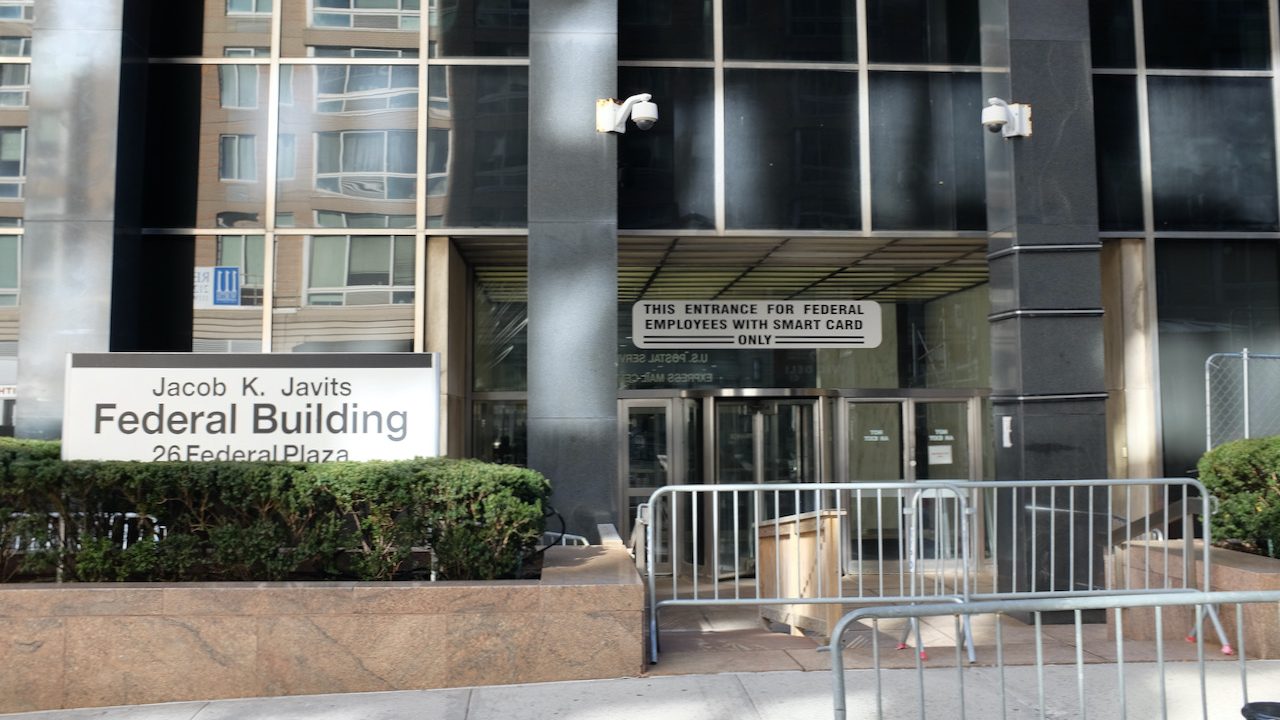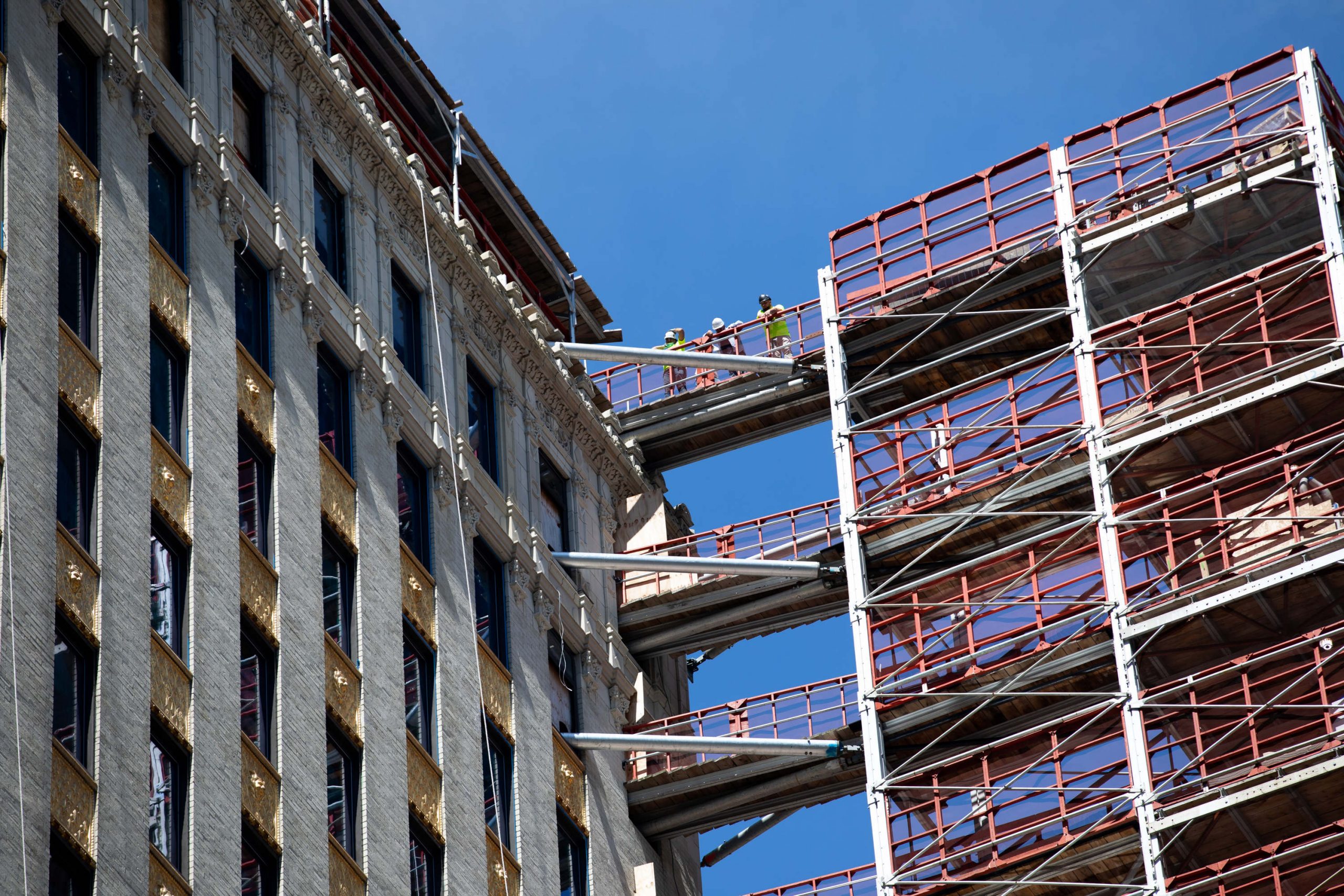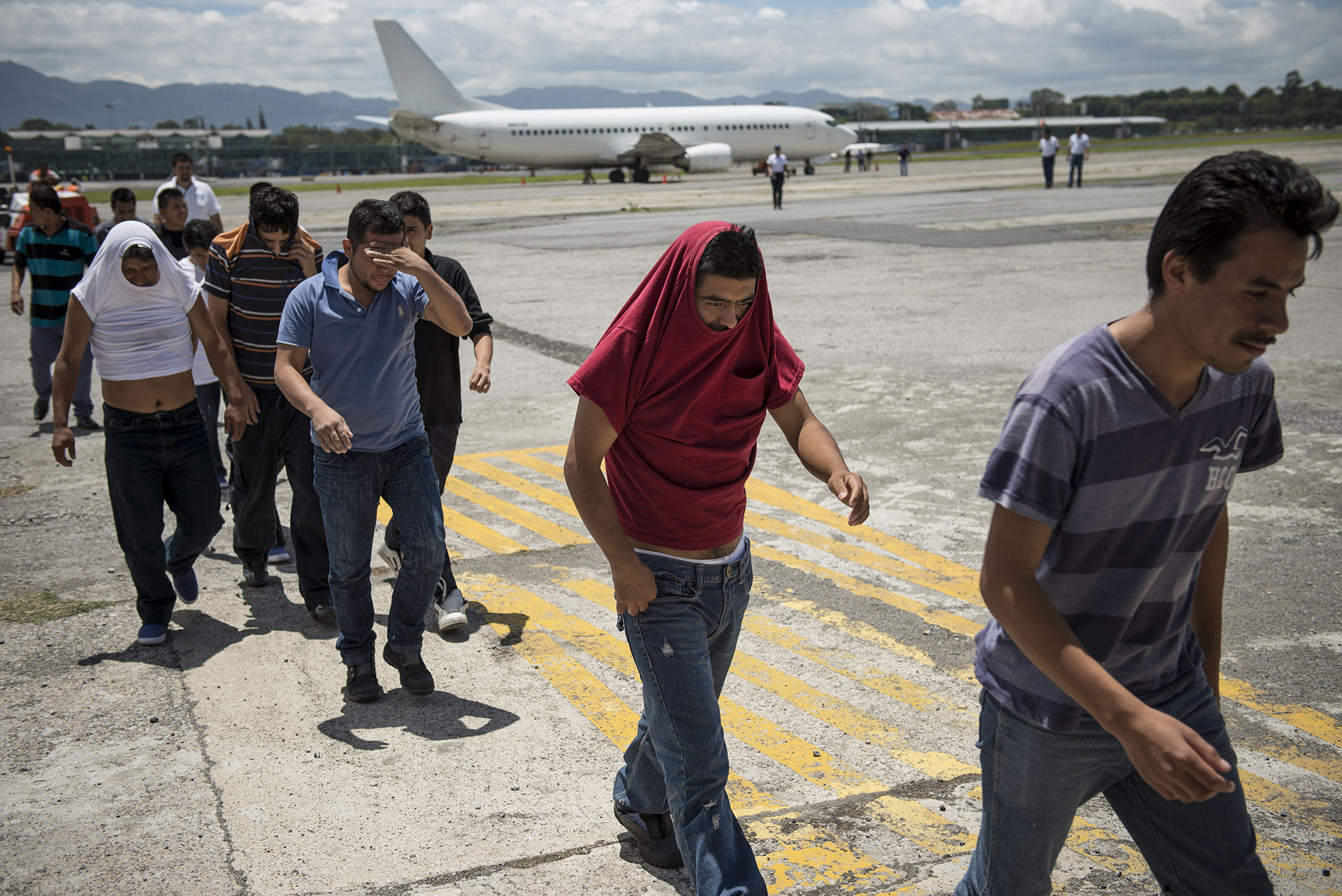Ana Celina Funes spends every day clutching her phone wondering when it will ring. She has lived more than 2,000 miles away from her son for over 20 years. Now, she’s waiting for a call that will determine if the two of them will finally be able to reunite. Funes has been fighting for years for her son, Fredy, to come join her in New York through the Central American Minors Refugee and Parole Program (CAM), ever since his application process began in 2015.
“I’m anxious. I’m thinking about it all day,” Funes, 45, said in Spanish. “I’m looking at my phone. I’m saying to myself: ‘I hope it rings, I hope it rings.’ To finally know the truth about what will happen with my son.”
The program, which was created under the Obama administration in 2014, was meant to serve as a pathway for children from the countries of Guatemala, Honduras and El Salvador to join their family members and others living under eligible legal statuses in the United States.
Also Read: Why People from El Salvador Still Feel Forced to Migrate to the US
But in 2017, former President Donald Trump’s administration canceled the program which halted the overwhelming majority of all new and ongoing CAM applications whose interviews were not completed by Jan. 31, 2018. Funes’ daughter, Emely, made it to New York about five years ago under the CAM program, but her son’s application process had not yet been completed when the program was scaled back.
In March 2021, the Biden administration announced that it would begin reopening the CAM program in phases. But data obtained by Documented from the U.S. Department of State, through a Freedom of Information Act lawsuit filed by the Center for Constitutional Rights and the Legal Aid Society, shows that the program is still struggling to stay afloat.
In the first calendar year since the program was reinstated in mid-March of 2021, 229 applicants were given refugee status, down from a height of 1,334 in the entire 2016 calendar year, a decrease of 82 percent. During the Trump administration, the numbers rapidly fell to a low of just 40 approved refugee cases in 2020.
In 2016, only 51 CAM cases were denied by United States Citizenship and Immigration Services. But in 2017, as the Trump administration shuttered the program, 1,255 cases were denied, according to data from the State Department.
As part of the Trump administration’s bulk closure of the program, 3,131 cases were closed in March of 2018, State Department data shows. Since the beginning of 2021 until February of 2022, 1,472 cases have been reopened.
Before the CAM program resumed in 2021, more than 4,000 children and qualifying relatives joined their loved ones through the program in the United States, according to the Migration Policy Institute.
Now, following the Biden administration’s 2021 announcement that Central American Minors Program would begin again, refugee resettlement agencies and advocates in New York and elsewhere are facing an uphill battle to restart working on applications after over three years of the program being shut down. They are working through a mountain of old and new cases with fewer local offices and strained resources to help families.
Local strain
The lack of federal funding for agencies that work with parents to prepare applications for the Central American Minors Program has made the process difficult. Organizations like Catholic Charities of the Archdiocese of New York, has had to use its own private resources to hire an individual to work with CAM applications, said Kelly Agnew-Barajas, the organization’s director of Refugee Resettlement.
Through small grants and private funding, Catholic Charities has started working on applications again. But the process hasn’t been easy — especially after so many years of the program lying dormant.
Also Read: Special Juvenile Status: Why Can’t They Get Their Green Cards?
“It’s very confusing to have it restart, and then not to really be able to do it as well as we would like to, is frustrating,” Agnew-Barajas said. “It’s just kind of like cobbling together ways to make sure that we could still do applications — that’s how we did it in the first round.”
Only refugee resettlement agencies are allowed to file the applications, with some potential exceptions if groups are granted additional funding aimed at organizations with a national scope, guidelines show, so the burden falls on resettlement agencies like Catholic Charities to go through the bulk of the work.
Agnew-Barajas previously worked on CAM cases more before the Trump administration shut them down, and she said she personally still recieves multiple inquiries from parents who are wondering about their applications.
Funes, who lives northwest of the City in Rockland County with her children, and is employed at a Dunkin’ Donuts, has been working with Catholic Charities on her son’s case ever since they first began his application in 2015.
“I’m happy right now — but immigration authorities are the ones who decide, so we’re just waiting to see what happens,” Funes said.
She’s been a New York resident for about 22 years, she said, and is on Temporary Protected Status. She has four children, ages 10 to 28. Two of her children were born in the United States.
Funes completed both her son’s and daughter’s applications at the same time, she said. It took less than two years for her daughter to arrive in the United States after she had first begun the application process, but almost seven years later, her son still remains in El Salvador, Funes said.
Fredy’s CAM case was closed under the Trump administration shutdown, leading to a lengthy waiting process for the outcome. So although Funes celebrated the arrival of her daughter through the CAM program in 2017, she was also left with great sadness when realizing that the shutdown of the program would also mean further separation from her son. “You feel very destroyed,” Funes said. “But what can you do? Nothing.”
Reopening the Central American Minors Program
Funes prayed that one day, when a different President would take office, her son’s case would reopen. “And look what happened,” Funes said.
Phase One of the reopening of the Central American Minors program, which began in March of 2021, allowed eligible individuals who previously had their cases shut during the Trump administration to reopen them.
Resettlement agencies had to go through scores of lists, calling petitioners and finding new addresses for the individuals whose cases were shut. Agencies had to update resources and build their teams back up, particularly since more than 100 local offices linked with resettlement agencies closed during the Trump administration.
For Phase Two of the reopening, which began in September of 2021, new applications for the CAM program could be accepted.
But the timing has been particularly challenging, some advocates say, as refugee resettlement agencies are still working with Afghan evacuees, fielding requests from Ukrainian arrivals, and dealing with other ongoing crises.
In CAM Phase Two, said Erlinda Garcia, Program Officer at the International Rescue Committee (IRC), “many resettlement agencies have been dealing with capacity challenges, and one of them is filing these CAM applications — resulting in many petitioners being placed on waiting lists.”
Eligibility has also expanded for CAM cases under the Biden administration, adding hundreds to the potential applicant pool.
The shutdown of the CAM program has also led to many petitioners being left out of the program for good, advocates said. As IRC contacted families about the potential of reopening their cases, it was common to hear that individuals had already made their way to the United States.
“That obviously left many people without any other option other than to just come on their own, because they had to flee — they were obviously in danger and they had no more time to wait to see what would happen,” said Tatiana Mendez, the Program Coordinator for CAM Parole Assistance at the IRC. The parents applying through this program, Mendez said, literally “don’t have any other way to bring their children safely.”
And although many family members were increasingly willing to wait for the application process to unfold, Mendez said, it got to the point where they would ask themselves: “How much longer can I wait?”
“It was kind of like choosing life or death in either decision they made, unfortunately, so in many cases they decided just to risk it to see if they could make it here,” she added.
Years of setbacks have only added more anxiety for parents like Funes who have now spent several additional years in limbo, waiting to hear the fate about their children’s potential arrival to the U.S. “Parents are very desperate,” Agnew-Barajas said. “It was very emotional, and very sad when the program was cut because we had to call these parents and let them know—this is the end of the road, as far as right now.”
Funes often thinks about the danger her son, Fredy, may be in at home in El Salvador, she said. He was studying English, she said, but stopped going to classes at college largely because of gang violence, she said. “‘I want to be with you all,’” Funes recalls her son saying. “He tells me that he misses me.”
Funes has not seen Fredy for about nine years, since she last visited El Salvador to see her family back home, she said. Under Temporary Protected Status, she is allowed to go back to her home country occasionally—but it requires an application process and approval from immigration officials, and her family cannot afford to go often, Funes said.
When she last saw her son, she never imagined it would take so long to see him again, Funes said. “A piece of my body is missing, I want to have them [my kids] all together,” she said.
But Funes always held on to the idea that her son would one day be able to join her, and his three siblings, together in New York.
“While there’s faith, there’s hope,” she said. Her dream is to have all of her children together. “If tomorrow I die, I’ll say that my fight was worth it if the four of them are reunited.”














